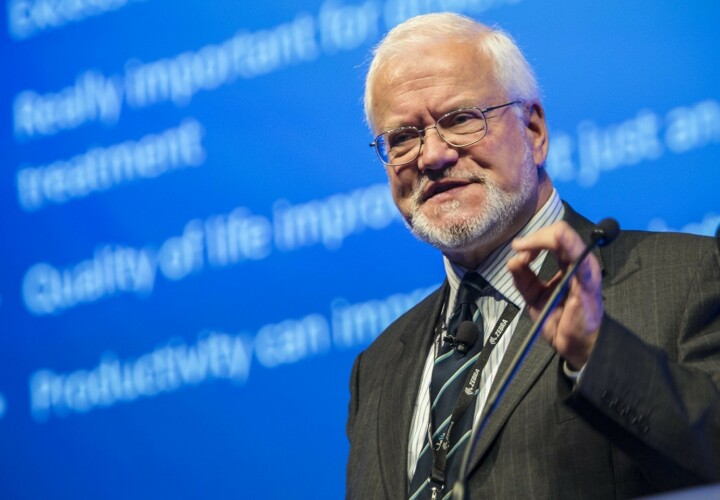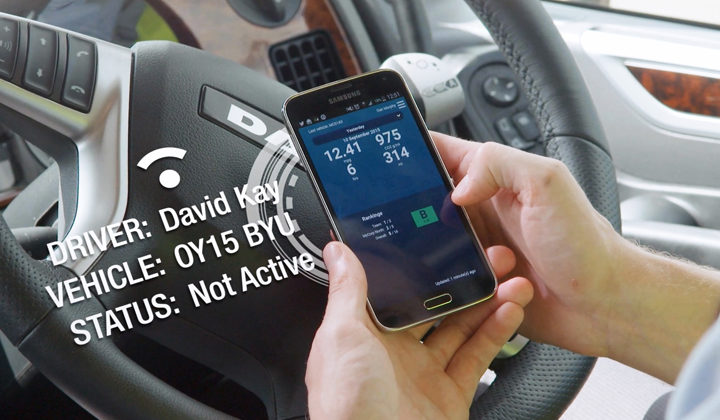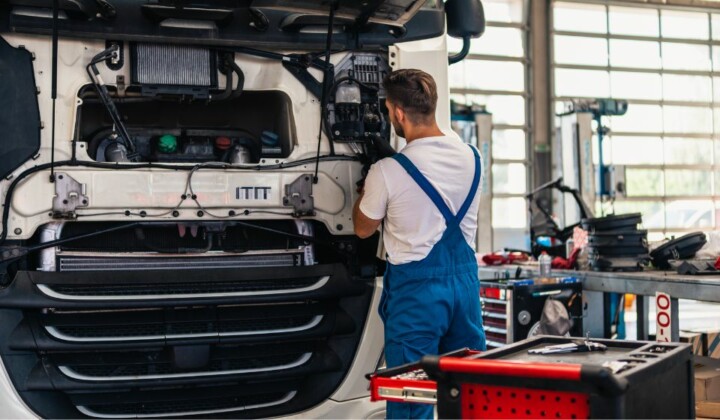Sleep Apnoea is a serious condition, particularly when put in the context of professional drivers in charge of vehicles often exceeding 40 tonnes.
It’s a relatively common condition, often referred to as obstructive sleep apnoea (OSA), where the walls of the throat relax and narrow during sleep, interrupting normal breathing. This may lead to regularly interrupted sleep, which can have a big impact on quality of life and concentration when behind the wheel.
The symptoms experienced during sleep includes loud snoring, noisy and laboured breathing, as well as repeated short periods where breathing is interrupted by gasping or snorting. Some also experience night sweats and may wake up frequently during the night to urinate.
During an episode, the lack of oxygen triggers your brain to pull you out of deep sleep – either to a lighter sleep or to wakefulness – so the airway can reopen for normal breathing. Those with OSA will usually have no memory of the interrupted breathing, and are often not aware there is a problem. Despite this, the repeated sleep interruptions can lead to a feeling of extra tiredness during the day.
At this year’s Microlise Transport Conference we invited John Stradling, Emeritus Professor of Respiratory Medicine at Oxford University, to speak. During his session the audience submitted lots of questions and here, you’ll find his presentation filmed as live at the event and answers to many of the most important questions posed by delegates.

What does the screening process consist of? How do you diagnose?
Screening processes are not perfect. However there are short questionnaires looking at sleepiness (Epworth) and OSA likelihood (STOPBANG) which if one reaches a certain combined score would suggest a second stage screening with a simple home sleep study (Apnealink or equivalent) would be a good idea.
What is the treatment for sleep apnoea?
CPAP. This involves wearing a small mask usually just over the nose than delivers slightly pressurised air that holds open the upper airway and stops the snoring, stopping breathing episodes and sleep disturbance. So simple yet so effective. It only works if you use it of course and needs to be used indefinitely unless weight is lost or some other treatment is able to replace it.
Why does Sleep Apnoea only affect middle aged men?
Probably because when men put on weight, it tends to accumulate in the upper body where it provokes OSA, especially in the neck and abdomen. In women pre-menopause weight tends to accumulate on the hips instead.
Do you accept that drivers do not report sleep apnoea to their doctors due to the paranoia of having driving licences removed by DVLA medical department since the Glasgow bin lorry case?
Yes, this is absolutely the case.
What is the professors recommended action when a driver is feeling sleepy at the wheel?
Stop driving, take a break, have a cup of coffee and a 15min nap. However if it’s a recurrent problem then seek medical advice as to possible causes.
Is sleep apnoea not greatly increased by being overweight? Should there be more focus on lifestyle and eating habits?
Yes weight is a significant risk factor but not the only one. We have tried to concentrate on lifestyle and eating issues over the years but we are no more successful than other areas of medicine. It is not appropriate to tell a sleepy driver with OSA to go away and lose weight. Firstly the sleepiness will remain until weight is lost, and weight will probably not go down and, if it does, is likely to rise again. That is why we would proceed to CPAP treatment and hope weight will come down in due course, which it rarely does.
Is there a simple test to see if someone has sleep apnoea? Can I test myself?
Someone observing you sleep can be effective – if they see you snoring, struggling to breathe and repeatedly gasping and apparently waking up briefly, then that’s pretty good evidence that further investigations would be a good idea, especially if they are more sleepy than normal. Other than that it’s not easy to diagnose oneself.
Should you use FitBit technology to monitor sleep patterns if concerned about your tiredness?
In my view this is not very helpful.
Does shift work exacerbate the condition?
It exacerbates the sleepiness as one then has two reasons for poor sleep. I do not think there is any evidence that shift work actually exacerbates the OSA itself.




